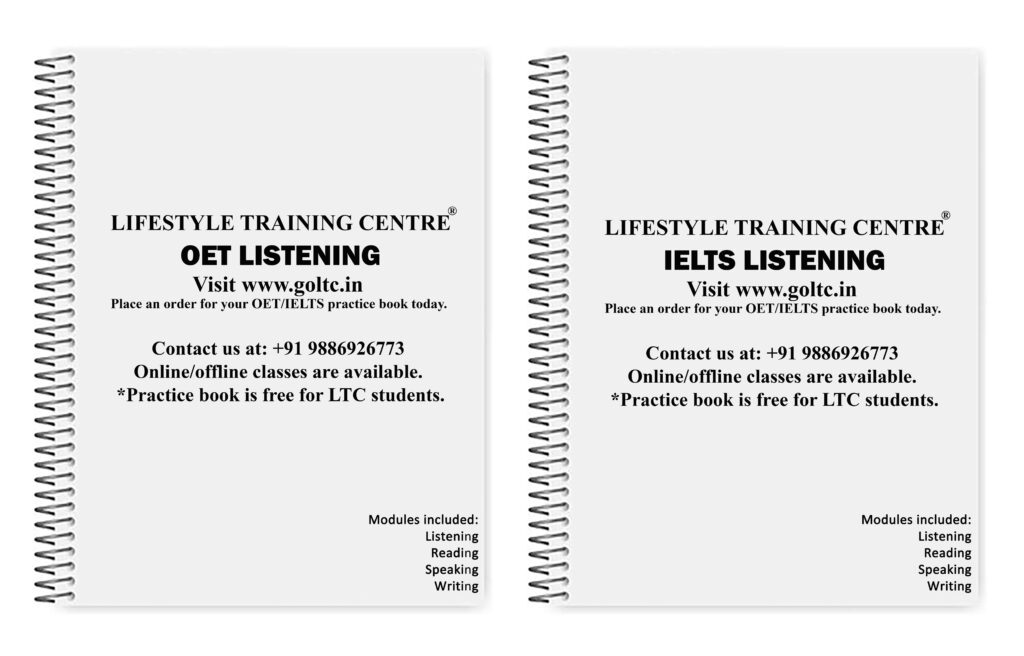TASK 1
1. Do you think it’s important to be on time?
Without a doubt, punctuality is the soul of business, and it holds immense importance in both personal and professional spheres. Being on time shows respect for others’ time, demonstrates reliability, and creates a lasting impression. It also helps you stay organised and prevents unnecessary stress. Whether it’s an interview or a dinner invitation, arriving on time sets the tone for a positive interaction. In essence, punctuality is a small habit that yields big dividends in building trust and credibility.
2. How do you feel when others are late?
When someone is late, it can feel like a spanner in the works, disrupting carefully laid plans. It often reflects poorly on their commitment and can cause unnecessary delays. However, I try to give people the benefit of the doubt, as unforeseen events like traffic jams or emergencies can happen. Still, habitual lateness can be irksome, as it signals a lack of consideration. Time is a precious commodity, and it’s frustrating when it isn’t valued by others.
3. Are you, yourself, late very often?
I pride myself on being a punctual person because I believe that time waits for no one. Rarely am I late for any appointment or engagement, as I make it a point to plan ahead. Whether it’s by setting multiple reminders or leaving home early to account for delays, I take punctuality seriously. I also view being on time as a reflection of my discipline and personal ethos. That said, I understand that no one is perfect, and on rare occasions, unforeseen delays can occur.
4. How do you feel when you are late?
Being late fills me with a sense of guilt and unease, as I know it can inconvenience others. It’s never a pleasant feeling to show up late, as it creates an impression of carelessness or poor planning. When this happens, I make it a point to apologise and explain the reason behind the delay. I always try to learn from my mistakes and improve my time management. Ultimately, I believe that an ounce of prevention is worth a pound of cure when it comes to avoiding tardiness.
5. How do you think you could be on time?
Staying punctual is all about being proactive rather than reactive. I ensure I leave plenty of room for delays by planning ahead and keeping a buffer in my schedule. Setting alarms, packing essentials the night before, and tracking travel times are some strategies I swear by. I also remind myself of the value of others’ time, which motivates me to be punctual. At the end of the day, maintaining a mindset of “better early than sorry” helps me stay consistent.
6. Do you wear a watch?
Yes, I never leave the house without a watch, as it’s both practical and stylish. For me, a watch is more than just a timekeeping device—it’s a symbol of discipline and sophistication. While smartphones can do the job, checking my watch feels more intentional and less distracting. Plus, it adds a touch of personal flair to my overall appearance. Wearing a watch reminds me to stay punctual and manage my time effectively.
7. When does time seem to move fast, and when does it seem to move slowly?
Time flies when I’m engaged in something I’m passionate about or spending moments with loved ones. Whether it’s laughing with friends or working on a hobby, the hours seem to vanish in the blink of an eye. Conversely, time seems to drag its feet when I’m waiting for something important or enduring a monotonous task. For instance, sitting in traffic or waiting for a meeting to start can make minutes feel like hours. It’s amazing how one’s perception of time is all in the mind.
8. If you could go back in time, what would you do differently?
If I could turn back the clock, I’d focus on managing my time more efficiently during my school days. I sometimes procrastinated on tasks, which caused unnecessary stress later. Hindsight is 20/20, and looking back, I realise how being more proactive could have saved me from last-minute chaos. That said, I cherish the lessons those moments taught me, as they’ve helped shape my approach to time management now. Every cloud has a silver lining, and those experiences were no exception.
9. Is being late ever acceptable in your opinion?
While I believe in the importance of punctuality, there are instances where being late is understandable. Life throws curveballs, such as unexpected traffic or emergencies, which can delay even the most punctual individuals. However, it’s crucial to communicate delays as soon as possible and offer apologies upon arrival. Chronic lateness, on the other hand, is a horse of a different colour and should be avoided. In general, respecting time—both yours and others’—is a principle that should be upheld.
10. How does being punctual affect professional relationships?
Punctuality is the bedrock of professionalism, as it sets the tone for trust and respect in any relationship. Being on time for meetings and deadlines shows that you’re dependable and serious about your commitments. It also reduces misunderstandings and helps teams work more efficiently. On the flip side, habitual tardiness can damage credibility and strain workplace dynamics. In short, punctuality acts as a catalyst for positive interactions and fosters a healthy work environment.
Vocabulary List (TASK 1)
- Punctuality – Being on time.
- Reliability – The quality of being trustworthy.
- Professionalism – Adherence to professional standards or conduct.
- Commitment – Dedication to a cause or activity.
- Guilt – A feeling of responsibility for a fault or mistake.
- Proactive – Taking initiative by acting before an event occurs.
- Discipline – Self-control and orderly conduct.
- Hindsight – Understanding of a situation after it has occurred.
- Sophistication – Elegance or refinement.
- Efficiency – Achieving maximum productivity with minimal waste.
- Credibility – The quality of being believable or trustworthy.
- Unforeseen – Not anticipated or predicted.
- Monotonous – Lacking variety; dull.
- Procrastination – Delaying or postponing something.
- Catalyst – Something that causes a significant change or event.
Idioms Used
- Punctuality is the soul of business – Being on time is critical for success.
- Time waits for no one – Time is precious and should not be wasted.
- Better early than sorry – It’s better to be early than to regret being late.
- Hindsight is 20/20 – It’s easy to understand something after it has happened.
- Every cloud has a silver lining – There is something positive in every bad situation.
- Spanner in the works – Something that disrupts a plan.
- Benefit of the doubt – Assuming the best about someone’s intentions.
- Time is a precious commodity – Time is very valuable.
- Drag its feet – To move slowly or reluctantly.
- Life throws curveballs – Unexpected events or challenges happen in life.
- A horse of a different colour – Something entirely different.
- Turn back the clock – Go back in time.
- Catalyst for positive interactions – Something that promotes beneficial relationships.
Phrases Used
- Respect for others’ time – Valuing the time of other people.
- Disrupt plans – Interfere with arrangements or schedules.
- Set the tone – Create a particular mood or atmosphere.
- Make a lasting impression – Leave a strong, enduring impact.
- Create a negative impression – Form an undesirable opinion.
- Plan ahead – Prepare or think about the future.
- Take punctuality seriously – Treat being on time with importance.
- A reflection of my discipline – Indicates self-control and orderliness.
- Give the benefit of the doubt – Trust someone without proof.
- Keep a buffer in the schedule – Allow extra time for contingencies.
TASK 2
5. Topic: A Memorable Book
– Question 5: Describe a memorable book you’ve read.
– You should say:
– What is the title and author of the book?
– When and where did you read it?
– What is the storyline, and why is it memorable to you?
– Has it influenced your perspective on any aspect of life?
Task 3 Follow-Up Questions and Answers:
1. Do you prefer physical books or e-books? Why?
I have a strong preference for physical books, as they offer a tactile experience that no e-reader can replicate. The feel of turning pages, the texture of the paper, and even the faint smell of ink make the reading process truly immersive. While e-books are undoubtedly convenient, especially for travelling or space-saving, they lack the charm and nostalgia of a hardcover or paperback. For me, holding a physical book creates a connection with the story that feels almost personal. As they say, “old habits die hard,” and my love for traditional books is one such habit.
2. How do you choose the books you read?
Selecting a book often feels like embarking on a treasure hunt. I rely on recommendations from friends, glowing reviews, or works by my favourite authors to guide my choices. Sometimes, an intriguing blurb or a visually appealing cover draws me in. I also gravitate towards books that align with my current mood or offer a chance to explore new perspectives. As they say, “don’t judge a book by its cover,” but sometimes that initial spark of curiosity starts there.
3. Do you think books can influence a person’s mindset or behaviour?
Books hold the power to shape minds and ignite change in profound ways. A well-written story or a thought-provoking argument can challenge preconceived notions, broaden horizons, or inspire action. For example, To Kill a Mockingbird opened my eyes to the complexities of morality and justice. It’s true what they say, “the pen is mightier than the sword,” as books often leave a lasting imprint on one’s character. They are more than just stories; they are tools for growth and self-reflection.
4. Have you ever read a book that you didn’t enjoy? Why?
Yes, I’ve encountered a few books that felt like a slog to get through. Sometimes the writing lacks substance, or the characters fail to resonate, making the narrative feel flat. Other times, the pacing is so slow that it tests one’s patience. However, even from these experiences, there’s a silver lining – they teach us what we value in good literature. As they say, “one man’s trash is another man’s treasure,” so perhaps these books were just not meant for me.
5. Do you believe classic literature is still relevant today?
Without question, classic literature remains a cornerstone of culture and education. These works delve into universal themes such as love, ambition, and morality that resonate across generations. Take Pride and Prejudice, for instance – its commentary on societal norms is just as pertinent today as it was in the 19th century. Classic literature often serves as a mirror, reflecting timeless human struggles and triumphs. As they say, “great minds think alike,” and the genius of classic authors ensures their relevance endures.
6. If you could meet an author, dead or alive, who would it be and why?
Meeting J.R.R. Tolkien would be an extraordinary experience. His intricate world-building in The Lord of the Rings is nothing short of genius, and I would love to learn how he brought such a vivid universe to life. I’d ask him about his inspirations, his writing process, and how his personal experiences influenced his work. As they say, “imagination knows no bounds,” and Tolkien’s creativity is a testament to that. It would be an honour to converse with a literary titan who redefined storytelling.
7. Do you think books are losing their appeal in today’s digital world?
While digital media dominates modern life, books still hold their ground as timeless companions. Audiobooks and e-books have made reading more accessible, catering to people with different preferences and lifestyles. However, the allure of a well-loved paperback or a beautifully bound hardcover remains strong among bibliophiles. It’s heartening to see how book clubs and online reading communities keep the passion for reading alive. As they say, “everything old becomes new again,” and books will never truly go out of fashion.
8. How important is the setting in a book’s narrative?
The setting is the backbone of any compelling narrative, painting a vivid picture that anchors the story. It can transport readers to distant lands, bygone eras, or even imaginary worlds. For example, the foggy streets of Victorian London in Sherlock Holmes mysteries add an air of intrigue and suspense. Without a well-crafted setting, a story risks losing its sense of reality and depth. As they say, “the devil is in the details,” and a rich setting provides those essential details.
9. Do you think children’s books can teach life lessons?
Children’s books are a treasure trove of wisdom wrapped in simple, engaging narratives. Stories like The Giving Tree or The Little Prince convey profound lessons on generosity, love, and resilience. These tales shape young minds, instilling values that remain long after the books are closed. They prove the saying, “little drops of water make the mighty ocean,” as small stories contribute significantly to character development. Even as adults, revisiting these books offers valuable reminders of life’s essentials.
10. What do you think makes a book a bestseller?
A bestseller often strikes the perfect balance between an engaging plot, relatable characters, and impeccable timing. Marketing plays a crucial role, but the story’s emotional resonance is what captures readers’ hearts. Books like Harry Potter or The Alchemist succeed because they speak to universal themes of courage, hope, and self-discovery. As they say, “strike while the iron is hot,” and books that tap into current trends or sentiments often soar in popularity. A bestseller ultimately connects with its audience in a way that lingers long after the last page is turned.
List of Vocabulary, Idioms, and Phrases (TASK 3)
- Tactile – Relating to the sense of touch.
- Immersive – Deeply engaging and absorbing.
- Resonate – To evoke a strong emotional response.
- Preconceived notions – Ideas formed before having evidence or experience.
- Nostalgia – A sentimental longing for the past.
- Slog – A tedious or difficult task.
- Pacing – The speed at which a story unfolds.
- Timeless – Not affected by the passage of time or trends.
- Bygone – Belonging to an earlier time.
- Impeccable – Flawless or without fault.
- Universal themes – Ideas or subjects relevant across all cultures and times.
- Profound – Deeply meaningful or significant.
- Accessible – Easy to approach, reach, or use.
- Bibliophile – A person who loves or collects books.
- Intrigue – Arousing curiosity or interest.
- Instill – To gradually impart an idea or value.
- Self-discovery – The process of gaining insight into one’s own character.
- Anchor – To hold firmly in place; provide stability.
- Sentiments – Feelings or emotions.
- Perspective – A particular way of viewing something.
Idioms
- Old habits die hard – It’s difficult to stop doing things that you’ve been doing for a long time.
- Don’t judge a book by its cover – Don’t make judgments based on appearances.
- The pen is mightier than the sword – Written words are more powerful than force.
- One man’s trash is another man’s treasure – What one person finds useless, another may value.
- Great minds think alike – People with good ideas often come to the same conclusions.
- Imagination knows no bounds – Creativity has no limits.
- Everything old becomes new again – Trends from the past often return.
- The devil is in the details – Small details can cause big problems.
- Little drops of water make the mighty ocean – Small efforts can lead to significant results.
- Strike while the iron is hot – Take advantage of an opportunity when it arises.
Phrases
- Tactile experience – Engaging the sense of touch.
- Spark of curiosity – A small moment that piques interest.
- Timeless companions – Something always relevant or comforting.
- Treasure trove of wisdom – A rich source of valuable insights.
- Emotional resonance – A deep connection with feelings or emotions.
- Shaped my perspective – Influenced how I view something.
- Vivid universe – A richly imagined world.
- Cultural cornerstone – A fundamental element of culture.
- Lingering impact – A lasting effect or influence.
- Balancing act – Managing competing demands or needs effectively.
IELTS Speaking Task Topics
Click on any topic to explore more!
Names

Learn about the importance of names and their cultural significance.
Study / Job

Discuss various aspects of studying and working in different fields.
Hometown

Explore the charm of your hometown and its unique features.
Accomodation

Understand various types of accommodation and living situations.
Weather

Learn about how weather influences daily life and activities.
Time

Discuss the concept of time, its importance, and time management.
Television

Talk about the role of television in modern entertainment.
Museum

Discuss the cultural importance of museums and historical exhibits.
Holidays

Explore the significance of holidays and different celebrations.
Films

Learn about the impact of films on culture and society.
Leisure Time

Discuss how leisure activities impact personal well-being.
Sport

Talk about the role of sports in health, entertainment, and culture.
Vegetables and Fruits

Discuss the health benefits and importance of fresh produce.
Maths

Explore the role of mathematics in various aspects of life.
Sky

Discuss the beauty and scientific significance of the sky.
Clothes&Fashion

Explore how clothing reflects culture and personal expression.
Weekend

Discuss the importance of weekends and ways people relax.
Reading

Learn about the importance of reading and various reading habits.
Sleep

Explore how sleep impacts physical and mental well-being.
Trees&Plants

Discuss the environmental and health benefits of plants.
Newspaper

Discuss the evolving role of newspapers in the digital age.
Texting

Explore the role of text messaging in modern communication.
Memorising

Learn techniques for improving memory and memorization.
Travelling

Discuss the importance and impact of traveling in modern society.
Communication

Explore the modes and significance of communicating well
Letter&Email

Explore the differences and significance of letters vs. emails.
Swimming

Discuss the benefits of swimming for health and fitness.
Snacks

Explore the role of snacks in daily nutrition and lifestyle.
Photography

Discuss photography’s cultural and artistic significance.
Help

Talk about the importance of offering and receiving help.
History

Discuss historical events and their impact on modern society.
Handwriting

Explore the significance of handwriting in education and culture.
Music

Learn about the influence of music on emotions and society.
Colours

Discuss how colours affect perception and mood.
Teachers

Explore the role of teachers in shaping students’ futures.
Being Alone

Talk about the experience and benefits of spending time alone.
Teamwork

Learn the importance of teamwork in professional and social contexts.
Countryside & City

Explore the charm and benefits of living in the countryside.
Social Media

Discuss the impact of social media on society and relationships.
Friends

Explore the importance of friendships in life.
Artificial Intelligence (AI)

Talk about the future of AI and its role in society.
Climate Change

Discuss the causes and consequences of climate change.
Transportation

Explore different modes of transportation in your area.
Sustainable Transportation

Explore ways to make transportation more environmentally friendly.
Space Exploration

Learn about the latest advancements in space exploration.
Shopping

Explore how shopping influences culture and the economy.
Modern Technology

Discuss how modern technology is reshaping society.
Technology

Learn about the role of technology in everyday life.
Sustainable Living

Explore ways to live sustainably for the future of the planet.
Globalisation

Learn about the effects of globalisation on society and economies.
Global Warming

Discuss the causes, effects, and solutions to global warming.
Gender Equality

Explore the importance of gender equality in modern society.
Health and Fitness

Discuss the importance of maintaining a healthy lifestyle.
Renewable Energy

Learn about renewable energy sources and their impact on the environment.
Cultural Traditions in Kerala

Explore the unique cultural traditions of Kerala, your hometown.
Cultural Traditions in Your Country

Learn about the cultural traditions in your country.
Education System

Discuss the education system in your country and its effectiveness.
Traditional Cuisine

Explore the significance of traditional cuisines in your culture.
Do you need printed IELTS/ OET practice material? Place your order today. Available now for just Rs: 1,100 (including shipping all across India) Contact us at our WhatsApp number: +91 9886926773 to place your order. (Free for LTC students)

We hope this information has been valuable to you. If so, please consider a monetary donation to Lifestyle Training Centre via UPI. Your support is greatly appreciated.

Would you like to undergo training for OET, PTE, IELTS, Duolingo, Phonetics, or Spoken English with us? Kindly contact us now!
📱 Call/WhatsApp/Text: +91 9886926773
📧 Email: mail@goltc.in
Visit us in person by following the directions on Google Maps. We look forward to welcoming you to the Lifestyle Training Centre.
Follow Lifestyle Training Centre on social media:
Thank you very much!
